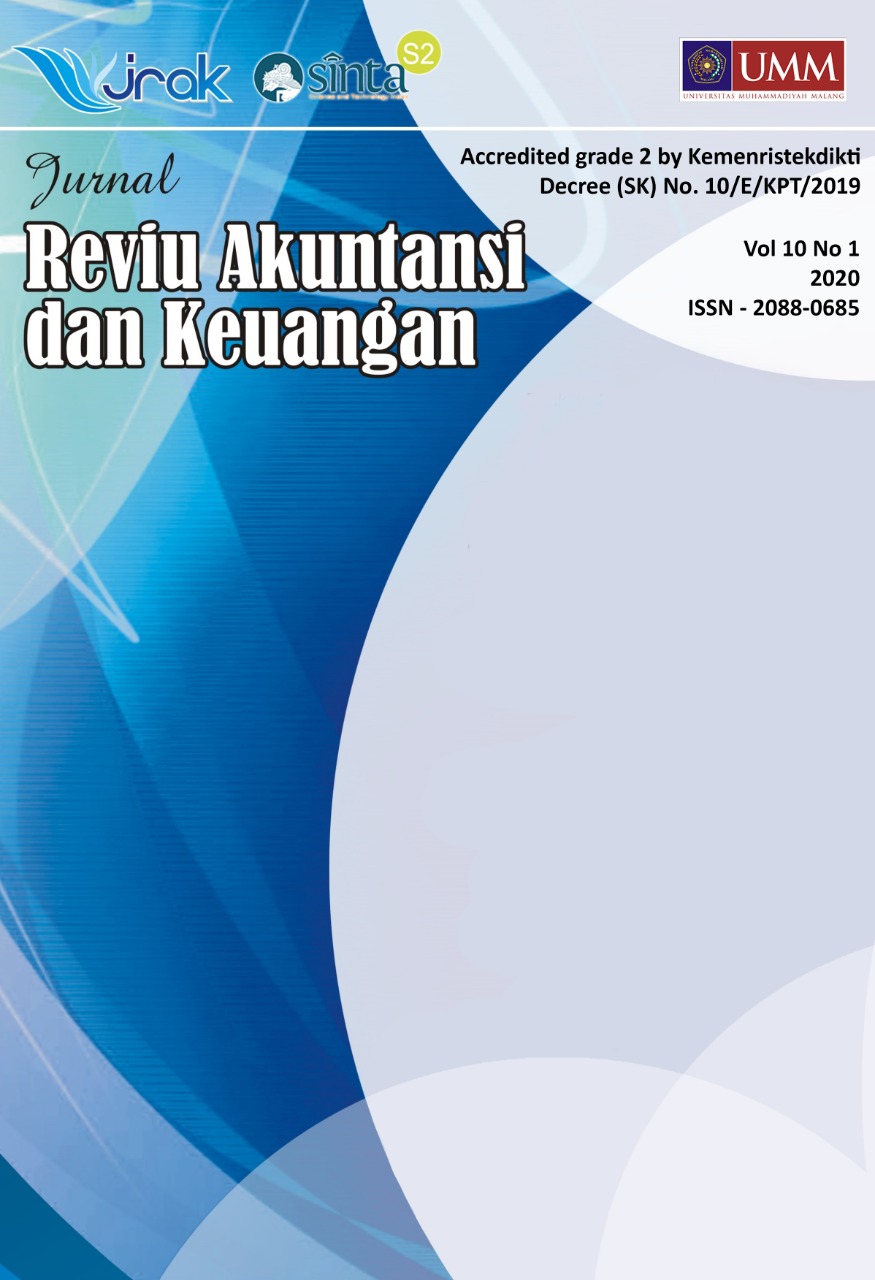SYNERGY OF SHARIA BANKS AND FINANCIAL TECHNOLOGY IN THE DEVELOPMENT OF MICRO, SMALL AND MEDIUM BUSINESSES IN INDONESIA
DOI:
https://doi.org/10.22219/jrak.v10i1.11258Abstract
ABSTRACT
The purpose of this study is to analyze the synergy between sharia bank and fintech to effort and develop micro, small and medium enterprises (MSMEs) in Indonesia. Data and information were obtained through interview to expert respondents in their fields such as BNI Syariah, Ammana Fintek Syariah and the Otoritas Jasa Keuangan (OJK). This study has been conducted from July 2018 to March 2019. To provide a deep understanding, this study uses a qualitative approach. The results of the study to show that the opportunity to create synergy between Sharia Bank and Sharia Fintech in order to develop MSMEs in Indonesia is still very wide open. This synergy can be done through several existing patterns or synergy models, including through cross-selling schemes, channeling, references, shadow investors, outsourcing platform and Fintech consortium. The benefits of this synergy include empowering MSMEs, facilitating financial services that are practical, comfortable, safe, have speed, sophistication and up-to-date and are more efficient. The challenges ahead are in terms of human resources competence and support from regulators for policy relaxation. Risks that must be properly mitigated from these synergies, such as the risk of credibility, technology, default and operations.
KEYWORDS: Financial Technology (Fintech); Micro; Small and Medium Enterprises; Sharia Bank, Synergy.
Downloads
Downloads
Published
Issue
Section
License

Jurnal Reviu Akuntansi dan Keuangan is licensed under a Creative Commons Attribution-NonCommercial-ShareAlike 4.0 International License.
Authors who publish with this journal agree to the following terms:
- Authors retain copyright and grant the journal right of first publication with the work simultaneously licensed under a Creative Commons Attribution-NonCommercial-ShareAlike 4.0 International License that allows others to share the work with an acknowledgement of the work's authorship and initial publication in this journal.
- Authors are able to enter into separate, additional contractual arrangements for the non-exclusive distribution of the journal's published version of the work (e.g., post it to an institutional repository or publish it in a book), with an acknowledgement of its initial publication in this journal.
- Authors are permitted and encouraged to post their work online (e.g., in institutional repositories or on their website) prior to and during the submission process, as it can lead to productive exchanges, as well as earlier and greater citation of published work (See The Effect of Open Access).










